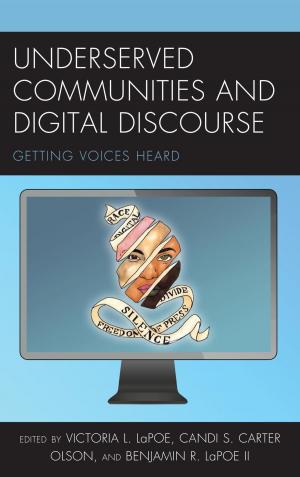Multiracialism and Its Discontents
A Comparative Analysis of Asian-White and Black-White Multiracials
Nonfiction, Social & Cultural Studies, Social Science, Cultural Studies, Minority Studies, Ethnic Studies, Sociology| Author: | Hephzibah V. Strmic-Pawl | ISBN: | 9781498509763 |
| Publisher: | Lexington Books | Publication: | July 26, 2016 |
| Imprint: | Lexington Books | Language: | English |
| Author: | Hephzibah V. Strmic-Pawl |
| ISBN: | 9781498509763 |
| Publisher: | Lexington Books |
| Publication: | July 26, 2016 |
| Imprint: | Lexington Books |
| Language: | English |
This book addresses the contemporary complexities of race, racial identity, and the persistence of racism. Multiracialism is often heralded as a breakthrough in racial reconciliation; some even go so far as to posit that the U.S. will become so racially mixed that racism will diminish. However, this comparative analysis of multiracials who identify as part-Asian and part-White and those who identify as part-Black and part-White indicates vastly different experiences of what it means to be multiracial. The book also attends to a nuanced understanding of how racism and inequality operate when an intersectional approach of race, class, gender, and sexual orientation is taken into account. Ittakes a focused look at how multiracialism is shaped by racism, but ultimately reveals a broader statement about race in the U.S. today: that there is no post-racial state and any identity or movement that attempts to address racial inequality must contend with that reality.
This book addresses the contemporary complexities of race, racial identity, and the persistence of racism. Multiracialism is often heralded as a breakthrough in racial reconciliation; some even go so far as to posit that the U.S. will become so racially mixed that racism will diminish. However, this comparative analysis of multiracials who identify as part-Asian and part-White and those who identify as part-Black and part-White indicates vastly different experiences of what it means to be multiracial. The book also attends to a nuanced understanding of how racism and inequality operate when an intersectional approach of race, class, gender, and sexual orientation is taken into account. Ittakes a focused look at how multiracialism is shaped by racism, but ultimately reveals a broader statement about race in the U.S. today: that there is no post-racial state and any identity or movement that attempts to address racial inequality must contend with that reality.















